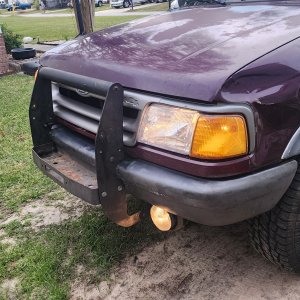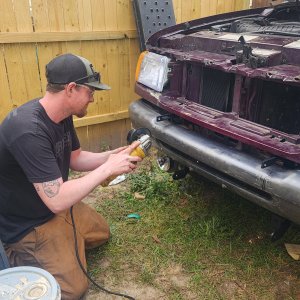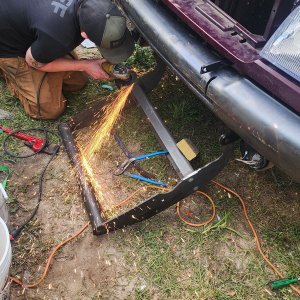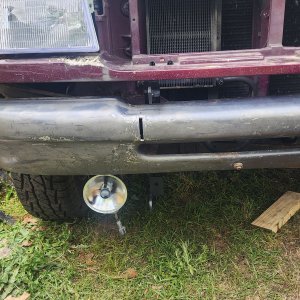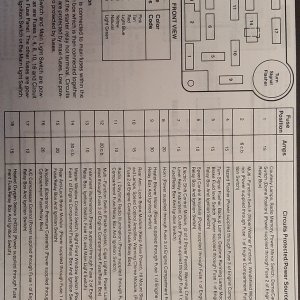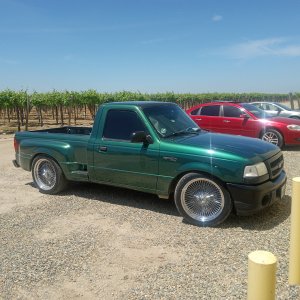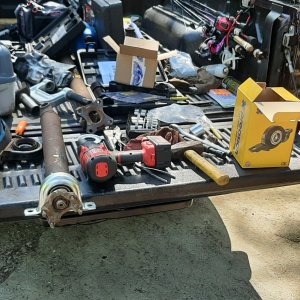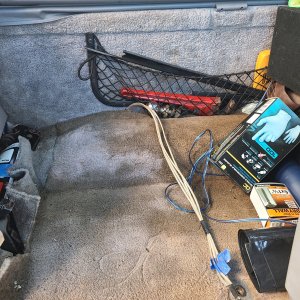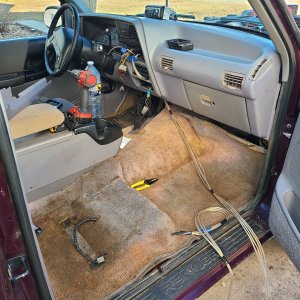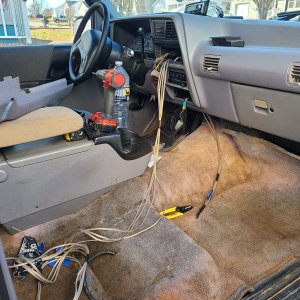Smoke test for vacuum leak is done with engine off, that's the point of using smoke, it will come OUT of a leak point, if engine was on it would just be sucked into a cylinder because of the vacuum.
Remove each vacuum line from intake manifold, one at a time, and blow smoke into it, watch to see if it comes out anywhere, it shouldn't.
Then blow lots of smoke into the intake manifold, via PCV hose or power brake hose, and watch for leaks around intake gaskets.
Ford injectors are noisy, just like Ford power steering pumps

If an injector seems too noisy then test it with an OHM meter, 14ohms is average, 11-18ohms is acceptable range.
Installing a 180deg(or 160deg) t-stat is the same as installing a Cold Air Intake, actually better since it's cheaper and will get the same results.
It will lower overall engine operating temp assuming cooling system is working at 100%.
This will lower intake temp.
Since one of the parameters of fuel injected systems is air temp, the now cooler air(denser) will require more fuel to get the correct fuel/air mix, more fuel = more power.
This is why people often comment that their engine seems "peppier" in cold weather, colder air = more fuel in the mix = more power.
But yes MPG will go down, simple math, will you notice this, depends on how accurately you track MPG, it won't change that much, but a definite reduction in MPG.
Oil lubrication is best at 200-220deg, that's the engine design parameter, all motor oil viscosity is rated at 212deg
Will your engine blow up if you run no t-stat or a lower temp t-stat, no, of course not, lol.
Will engine efficiently go down, yes, of course it will.
Will engine power go up, yes, of course it will.
Will lowering overall engine temp reduce pinging?
It would depend on why the engine was pinging.
Pinging/pre-detonation has a few causes:
Incorrect spark timing
Too lean fuel/air mix
Too low octane rating for engine compression
Cylinder temp to high for octane rating(octane is a heat rating so this is a "duh" statement, lol)
Heat is a contributing factor in all of these, so lower engine temp would slow the start of the pinging but wouldn't eliminate it since it is not the direct cause of the pinging.
Engine design is for efficiency, so running close to the lean marker is what is desired, this is why adding unmetered air can cause pinging, i.e. a vacuum leak, this leans the mix too much, too lean = pinging.
EGR system allows for leaner mix under load, better emissions and efficiency, so pinging under load could be an EGR system issue.


